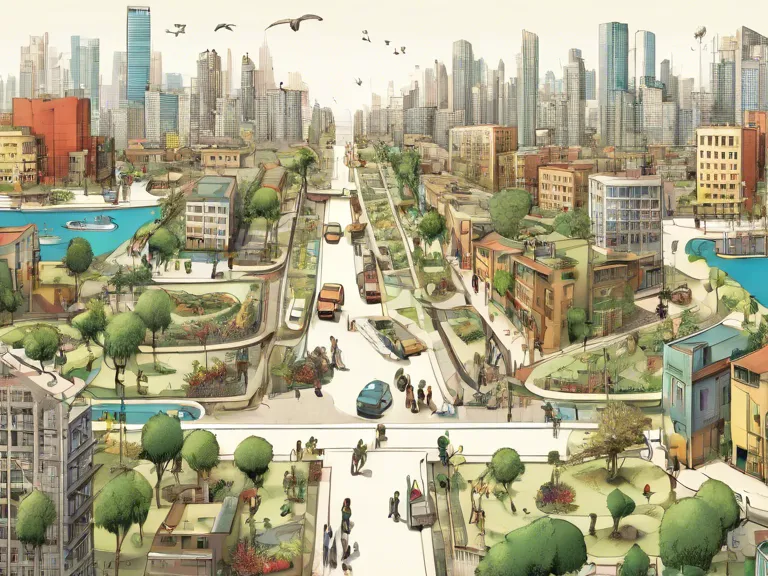
Rethink urban planning with a focus on sustainability, resilience, and community engagement for building a brighter future for cities and their residents.
Urban planning has traditionally focused on designing cities to accommodate growth and development. However, in the face of rapid urbanization and climate change, it is crucial to rethink urban planning strategies to build sustainable and resilient cities. By incorporating new insights and innovative approaches, cities can better adapt to environmental challenges and provide a high quality of life for their residents.
One key aspect of rethinking urban planning is the emphasis on sustainability. Sustainable urban planning involves designing cities with a focus on energy efficiency, green spaces, public transportation, and waste management. By prioritizing sustainability, cities can reduce their environmental impact and create healthier living environments for their residents. This can also lead to cost savings in the long run, as energy-efficient buildings and transportation systems can lower operating expenses.
Additionally, resilience is another key factor in modern urban planning. Resilient cities are able to withstand and recover from shocks and stressors, such as natural disasters or economic downturns. By integrating resilience into urban planning, cities can enhance their ability to adapt and bounce back from challenging situations. This can involve strategies such as building resilient infrastructure, creating strong social networks, and promoting economic diversification.
Collaboration and community engagement are also critical components of rethinking urban planning. Involving residents in the planning process can ensure that their needs and concerns are taken into account, leading to more sustainable and inclusive city designs. Collaborating with various stakeholders, such as businesses, non-profit organizations, and government agencies, can also help cities leverage the expertise and resources needed to address complex urban challenges.
In conclusion, rethinking urban planning is essential for creating cities that are both sustainable and resilient in the face of global challenges. By incorporating sustainability, resilience, collaboration, and community engagement into the planning process, cities can build a brighter future for their residents. It is time to embrace new insights and innovative approaches to urban planning and pave the way for more livable, vibrant, and environmentally friendly cities.



